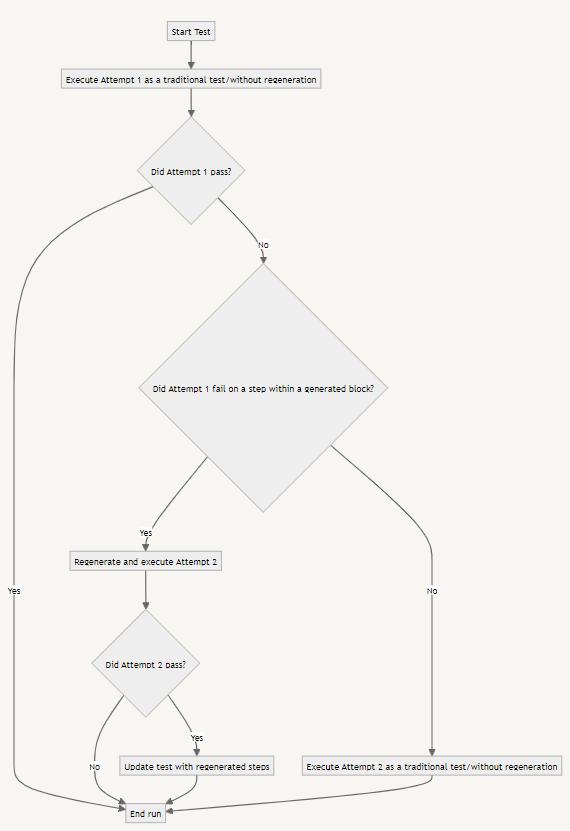Generating Self-Healing Tests
Guide on how to generate Rainforest tests that self-heal.
Overview
Based on simple, plain-English prompts you provide, Rainforest uses generative AI to generate test steps and — upon test failure — to automatically regenerate those test steps in an attempt to self-heal. If regenerated test steps successfully self-heal, then Rainforest automatically updates your test to the new, passing state, saving you time on test maintenance.
To learn about best practices for self-healing with AI-generated test steps, visit this article.
Creating a test with self-healing steps
Write a prompt in plain English, and Rainforest's AI will generate the associated steps under it.
Generating test steps based on a prompt
- Click on the Describe steps to add OR click the ➕ button.
- Describe the action you wish to perform. For example:
- "Add a product to the cart"
- "Fill the form using dummy data"
- "Visit the signup page and create an account"
- Press the Enter key to generate test steps.
- View the underlying steps being generated, as part of the self-healing snippet.
Using test data
- When creating a prompt, type {{ into the prompt.
- Select a variable from the popup.
Regenerating test steps
- Click on the 3-dot icon next to the snippet name and select Regenerate steps from prompt
- The previously generated steps will disappear, and the new steps will appear when they're generated.
Stopping the generation of test steps
- Click on the Stop generating steps button at the top of the sidebar
Previewing the test
Previewing a test with a self-healing snippet will not execute any test step generation — it will simply execute the test steps as they exist within the visual editor.
Previewing will ignore your plain-English prompts, treating them the same way as a Comment action. The steps generated based on your prompts, however, will be executed.
Preview a test containing a self-healing snippet
- Select the steps you wish to preview.
- Click on Preview.
Running the test
Running a test with self-healing snippets will follow this logic:

Working with results
For each type of test result, you can see a summary or explanation.
- Successful: how many steps passed.
- Self-healed: what changed in the test/steps between the attempts.
- Failure: why the run failed.
Viewing results
- Go to the Runs page.
- View the icon indicating the result.
- ✔: passed on first attempt, without retry/secondary-level matching (DOM, AI label).
- ✔🟠: passed using either regular retry (not regenerated) or secondary-level matching (DOM, AI label).
- ✔✨: passed on regenerated retry.
- ❌: failed.
Viewing the run summary
- Hover over the run result icon to view the run summary.
Viewing a successful run
- Click on a run that has a green check mark.
- View the underlying steps and the result.
Viewing a self-healed run
- Click on a run that has a green check mark with purple sparkles.
- View the underlying steps and the result.
- Attempt 1: why it failed.
- Attempt 2 (regenerated, self-healed & auto-updated): what changed in the test steps from attempt 1.
Viewing a failed run
- Click on a run that has a red "X."
- View the underlying steps and the result.
- Attempt 1: why it failed.
- Attempt 2: why it failed (might contain regenerated steps if the failed step in Attempt 1 was within a generated snippet - will not auto-update the test though).
Test history
You can view the test's version history and restore any version, including any updates resulting from regenerative self-healing.
Viewing the self-healed version of a test
- Click on the view history icon.
- View the changes made to the test by looking for Rainforest self-healing under the PERFORMED BY column.
Best Practices
Visit this article to learn more.
If you have any questions, reach out to us at [email protected].
Updated 4 months ago
